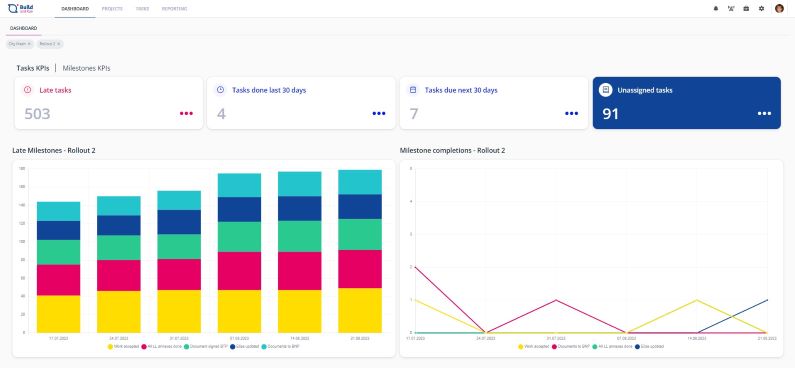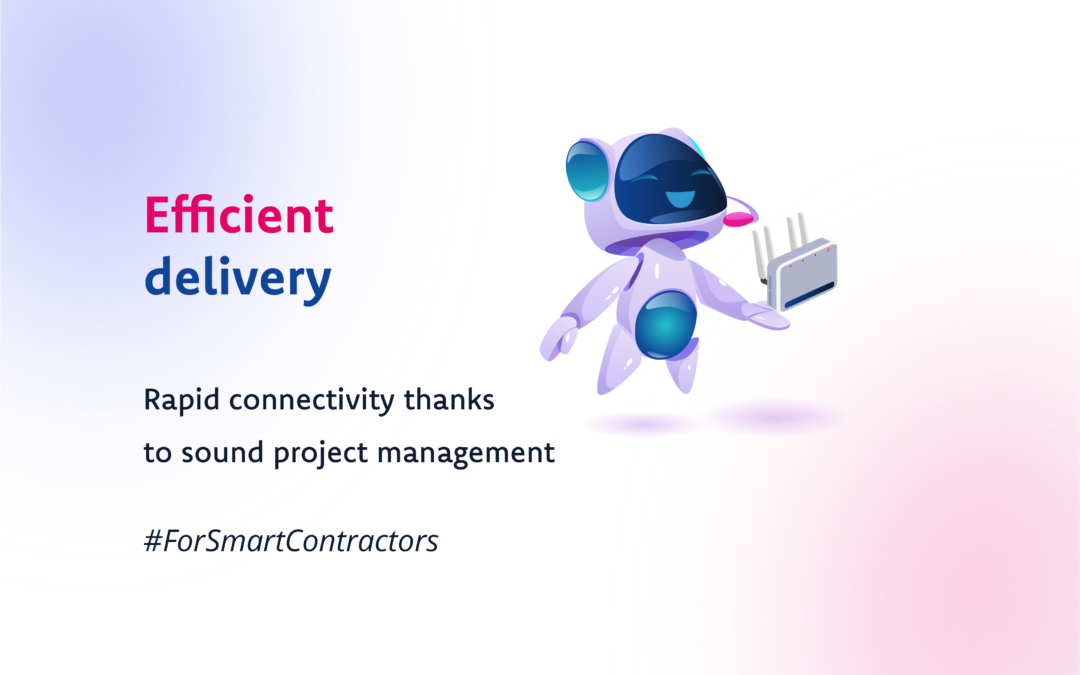Efficient delivery plays a vital role in the successful deployment of fiber optics. It helps to meet deadlines, control costs and ensure fast broadband connectivity for end-users.
Reducing lead times
One of the key benefits of efficient delivery is reduced lead times. Thanks to robust project management, deployment stages can be optimally planned, taking into account constraints and available resources. For example, with BuildAndRun’s dashboard providing a centralized view of operations, you can minimize delays, speed up the implementation of the fiber optic network and deliver fast connectivity to your end-users.

BuildAndRun standard dashboard
Cost control
Cost control is another essential aspect of efficient delivery. Well-structured project management makes it possible to track and control expenditures, optimize the use of resources, and identify opportunities for savings. By minimizing unforeseen expenses and avoiding budget overruns, efficient delivery contributes to the overall profitability of fiber optic deployment.
Installation in compliance with standards and best practices
Efficient delivery also guarantees high-quality fiber optic installation. By adhering to industry standards and best practices, technical teams ensure correct and reliable network installation. This includes precisely managing connections, protecting cables from damage, and carrying out performance tests to ensure that the network operates to specification.
Guaranteeing customer satisfaction
Efficient delivery of fiber deployment is also essential for customer satisfaction. By providing reliable broadband connectivity on schedule, end-users quickly reap the benefits of fiber optics, such as high download speeds, a stable connection, and high-performance online services. This promotes a positive end-user experience and strengthens the reputation of service providers.
A lever for economic and social development
Last but not least, efficient delivery of fiber optic deployment promotes economic and social development. By providing a fast, reliable communications infrastructure, businesses gain access to new opportunities, communities benefit from improved connectivity for education, healthcare, and other essential services, and end-users enjoy high-speed connectivity for their personal and professional needs.

